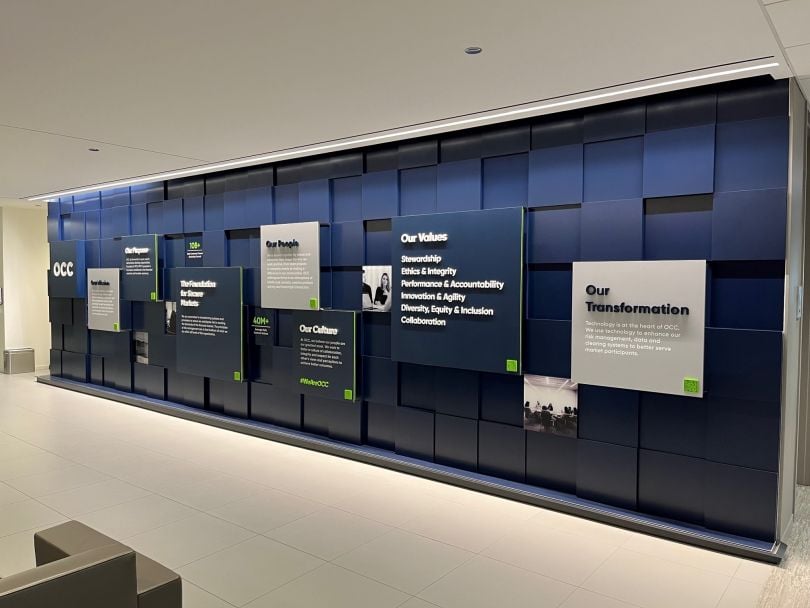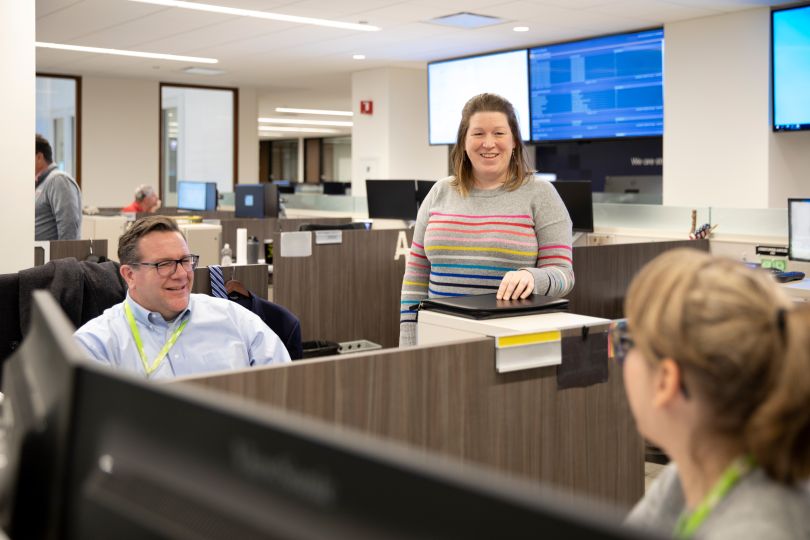Step aside, Michelangelo. A new renaissance has begun — and it’s occurring in the cloud.
No, not the type of cloud you’d find handpainted in the Sistine Chapel; rather, the cloud that’s been redefining the tech industry.
Cloud computing has existed for several decades, yet its influence has grown substantially over the past several years. Recently, it has been adopted across an increasing number of industries — including financial services.
It’s one thing to use the cloud for personal banking services, but if you apply this same technology to the financial markets, you’ll run into many more complications.
Just ask the team at OCC. Several years ago, the equity derivatives clearing organization began evaluating use of the cloud to develop evolutionary solutions.
“We were taking a look at our current tech stack and the limitations of it and realized that we really needed to move forward and modernize our technology,” said Candice Schmidt, OCC’s Executive Principal of Cloud Architecture.
That’s when the “Renaissance Initiative” took hold, signaling the start of a transformative journey that would affect every level of the organization. But before the company could fully enter its next chapter, it had to receive a “notice of no objection” from the SEC.
So when OCC received the notice from the SEC last fall, the organization started preparing to implement the cloud into its core clearing and settlement business. The company expects to launch its new cloud-based clearing platform, Ovation, in 2025.
While there’s still some time before the new product is unveiled, the company has already felt the impact of the cloud across its teams.
“It’s a huge leap forward for us,” Schmidt said.

A ‘Once-In-A-Generation’ Undertaking
OCC is no stranger to significant leaps of progress, having served in the options space for 50 years. Yet its latest achievement has taken the organization to the next level.
“We’re able to set an example for other systemically important financial services companies who are looking to take advantage of cloud technology as well,” Schmidt said.
According to Schmidt, moving forward with cloud-based technology has enabled the use of automation, which has already had a significant impact. Now, tasks that once took between weeks and months to complete in OCC’s development and testing environments can be fulfilled in mere minutes or hours.
Automation also allows the team to maintain steady, predictable performance. “We’ll be taking advantage of technology that lets us use autoscaling while ensuring that we still have the reliability and the high level of availability that we have with our current setup,” Schmidt said.
Yet automation isn’t the only benefit that has come out of the cloud. OCC’s Director of Cloud Engineering Joe Hughes said the technology has allowed the company to embrace infrastructure as code; a process that was previously inaccessible.
“Keeping all of our infrastructure in a codebase helps us keep agility and flexibility baked into how we develop software,” he said. “It’s an entire mindset shift.”
“Keeping all of our infrastructure in a codebase helps us keep agility and flexibility baked into how we develop software. It’s an entire mindset shift.”
The multiyear initiative has enabled a number of team members to become certifiable cloud experts, Hughes noted. This mastery, coupled with the addition of new team members, has placed the organization in a “different groundswell of capability.”
He believes this marriage between expertise and talent has given way to the ongoing creation of “once-in-a-generation” technical architecture.
“This isn’t just vanilla cloud design,” he said. “We have a very secure, reliable and performant architecture combined with lots of microservices. It’s a very complex, interesting design.”

Improved Speed, Polished Performance
Technologists at OCC aren’t building upon a framework that already exists. Instead, they get the exciting opportunity to establish a system from the ground up.
“This is where you’re actually getting to choose brand new technologies, test them out, work with them and build your skill set,” Schmidt said.
According to Schmidt, the organization uses some of the most cutting-edge tools on the market, including HashiCorp and Kubernetes. And considering the amount of vetting that occurs for each piece of technology, this level of innovation has even surprised some of the organization’s partners.
INVESTING IN EVOLUTION
As team members continue to handle new technologies and challenges, OCC is ensuring employees have the training they need to succeed. Hughes said the organization has already made an effort to educate employees through online courses since the Renaissance Initiative began and will continue to do so during this current phase of the project. The organization plans to set up a series of bootcamp courses through Amazon as well as certification courses to ensure everyone has equal foundational knowledge.
In addition to the unprecedented levels of innovation, Hughes believes that this powerful technological backbone has enabled the organization to operate more effectively overall.
“We’re so much more agile than we were before. It’s allowing our business units to customize and respond to requests from our customers,” he said, noting that it’s now easier to recreate a new environment or system, enabling the company’s business team to act more quickly.
“We’re so much more agile than we were before.”
Considering the fluctuations of the financial markets, it’s especially important for OCC’s technology to respond to peaks and troughs.
“The cloud lets us make changes in capacity and technology to accommodate performance even more quickly,” Schmidt said.

A New Direction Drives Connection
The Renaissance Initiative has compelled OCC to transform — both technically and culturally.
Both existing and future employees will have more chances to grow their individual skill sets, Schmidt said, given their exposure to new technologies, systems and approaches. This means they also have the chance to move across departments and take on new roles that align with their interests and expertise.
For Schmidt, cross-functional teamwork is core to OCC’s current focus. “It’s very common for people on different teams to work together on various projects,” she said.
Team members will even see interns interacting directly with senior leaders. According to Schmidt, titles and department designations don’t bar the way for innovation and collaboration.
With this cohesion comes a sense of community that may seem rare for a company as large as OCC. Yet Hughes, who considers the organization “the biggest small company he’s ever worked for,” said those who join the team can expect to know their colleagues, both personally and professionally.
With its current technical transformation, as well as opportunities to grow and connect with others, OCC has become known as a place where employees stay — and, in some cases, return.
“If you enjoy learning and growing, that’s something you can definitely do at OCC,” Schmidt said. “There’s always another opportunity to do more.”







